Upcycling in Food and Beverage Manufacturing: Unlocking Value Through Innovation and Integration
As a Plant Manager in the food and beverage manufacturing industry, you’re no stranger to the dual challenges of maximizing operational efficiency while adhering to sustainability goals. Among the myriad strategies available, upcycling is emerging as a transformative approach. By creatively repurposing food byproducts and waste, upcycling not only addresses waste management but also introduces new revenue streams and bolsters sustainability initiatives.
When integrated with advanced systems like PlanetTogether and enterprise solutions such as SAP, Oracle, Microsoft, Kinaxis, or Aveva, upcycling can be seamlessly embedded into manufacturing processes for measurable impact.
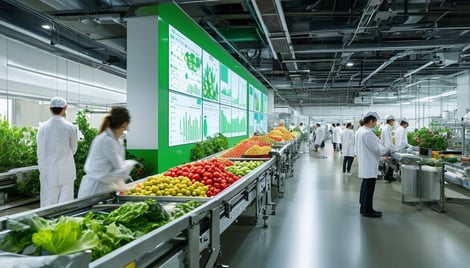
The Business Case for Upcycling
Food waste is a pervasive issue globally, with billions of tons discarded annually. For manufacturers, this represents not only a loss of raw materials but also an untapped opportunity. Upcycling converts byproducts or surplus food into valuable products, transforming what was once waste into ingredients, snacks, beverages, or even packaging materials.
Benefits include:
Cost Savings: Reduced waste disposal costs and potential savings on raw materials.
Revenue Streams: New product lines derived from upcycled materials can drive profitability.
Sustainability Credentials: Demonstrating environmental stewardship enhances brand reputation and aligns with consumer preferences for eco-friendly products.
Regulatory Compliance: Proactively addressing waste reduction can support adherence to increasingly stringent environmental regulations.
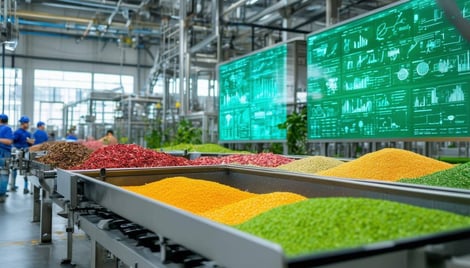
Overcoming Challenges in Upcycling
Despite its potential, upcycling introduces complexity. Manufacturers must address:
Process Integration: Upcycling often requires changes to existing production lines.
Quality Control: Ensuring upcycled products meet safety and quality standards.
Supply Chain Coordination: Securing markets for upcycled goods and aligning with suppliers and distributors.
This is where technology becomes indispensable. Integration between systems like PlanetTogether and ERP platforms such as SAP, Oracle, Microsoft, Kinaxis, or Aveva ensures a streamlined approach to planning, execution, and monitoring.
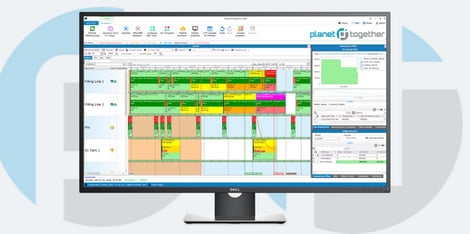
The Role of Integration in Upcycling Initiatives
1. Production Planning and Optimization
Upcycling processes add new layers of complexity to production schedules. PlanetTogether’s advanced planning and scheduling (APS) capabilities, when integrated with ERP solutions like SAP or Oracle, allow plant managers to:
Visualize Production Scenarios: Simulate the impact of upcycling initiatives on existing production lines.
Allocate Resources: Efficiently assign equipment, labor, and materials for upcycling operations without disrupting core manufacturing processes.
Optimize Throughput: Balance the introduction of upcycling processes with minimal downtime.
2. Supply Chain Synchronization
The supply chain plays a critical role in upcycling. Integration with systems like Kinaxis or Microsoft Dynamics ensures:
Inventory Management: Track byproducts and raw materials earmarked for upcycling.
Demand Planning: Align upcycled product outputs with market demands.
Supplier Collaboration: Facilitate partnerships with suppliers for raw byproduct inputs or co-manufacturers.
3. Data-Driven Decision Making
Data is the cornerstone of successful upcycling initiatives. By connecting PlanetTogether with platforms like Aveva or SAP, manufacturers can:
Monitor Key Metrics: Track waste reduction, cost savings, and output efficiency.
Predict Performance: Use analytics to evaluate the potential ROI of upcycling projects.
Enhance Transparency: Provide stakeholders with insights into sustainability efforts.

Real-World Applications of Upcycling
1. Upcycled Ingredients
For example, fruit peels, spent grain, or vegetable pulp can be converted into nutrient-rich powders or fibers used in health foods or beverages. Integration between PlanetTogether and SAP can help ensure these byproducts are captured, stored, and processed efficiently, reducing spoilage and maximizing yield.
2. Packaging Innovations
Food byproducts like cornstarch or potato peels can be upcycled into biodegradable packaging materials. Systems like Aveva can monitor the production process to ensure the upcycled material meets quality standards, while PlanetTogether schedules its production alongside regular packaging lines.
3. Beverages from Byproducts
Breweries and juice manufacturers are leading the charge in creating new beverages from byproducts like whey or coffee grounds. Oracle’s cloud-based solutions can provide demand forecasting insights, ensuring upcycled beverages are produced in quantities that align with market trends.
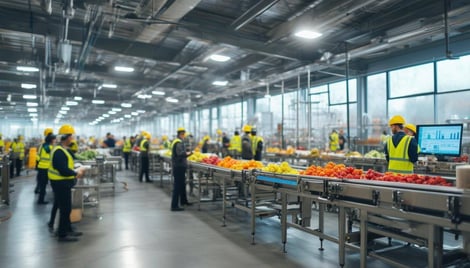
Steps to Implement Upcycling in Your Facility
1. Assess Opportunities
Conduct an audit to identify byproducts or waste streams that can be upcycled. Collaborate with your sustainability and R&D teams to evaluate the feasibility of repurposing these materials.
2. Leverage Technology
Integrate PlanetTogether with your ERP system. For example:
SAP: Use SAP’s analytics tools to identify cost-saving opportunities in upcycling.
Microsoft Dynamics: Manage supply chain complexity through enhanced visibility.
Kinaxis: Optimize the flow of byproducts to upcycling production lines.
3. Pilot the Process
Start small by launching a pilot project. Use PlanetTogether’s scheduling tools to test the process without impacting your primary operations.
4. Engage Stakeholders
Involve teams across production, supply chain, and marketing. Clearly communicate the benefits and gather input to refine the process.
5. Scale and Monitor
Once the pilot is successful, scale the upcycling initiative. Use integrated systems to continuously monitor performance and make data-driven adjustments.
Upcycling is more than a trend; it’s a strategic opportunity to align sustainability with profitability. By integrating advanced planning tools like PlanetTogether with robust ERP systems, plant managers can turn the complexities of upcycling into competitive advantages.
As consumers demand more sustainable products and regulators tighten restrictions on waste, embracing upcycling positions your facility as a leader in innovation and environmental responsibility. Whether you’re producing upcycled ingredients, creating eco-friendly packaging, or developing entirely new product lines, the right technology partnerships will enable you to succeed.
Upcycling is reshaping the food and beverage manufacturing landscape, turning waste into opportunity. With tools like PlanetTogether integrated with ERP platforms such as SAP, Oracle, Microsoft, Kinaxis, or Aveva, plant managers have the resources to operationalize upcycling effectively. By adopting this innovative approach, your facility can reduce waste, enhance sustainability, and unlock new revenue streams—delivering tangible value to your business and the planet alike.
Are you ready to take your manufacturing operations to the next level? Contact us today to learn more about how PlanetTogether can help you achieve your goals and drive success in your industry.
Topics: Regulatory Compliance, PlanetTogether Software, Integrating PlanetTogether, Data-Driven Decision-Making, Costs Savings, Food and Beverage Manufacturing, Dynamic Production Planning and Optimization, Supply Chain Synchronization, Revenue Streams, Sustainability Credentials







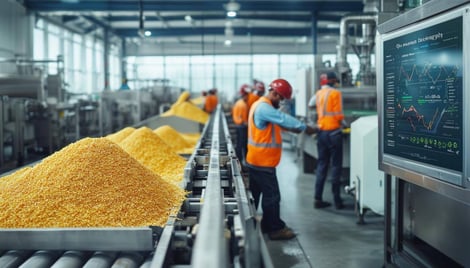













LEAVE A COMMENT